Chris Froome: I was keeping some energy back for Sunday
Vuelta a Espana leader says he didn't want to go into red ahead of Sierra Nevada stage
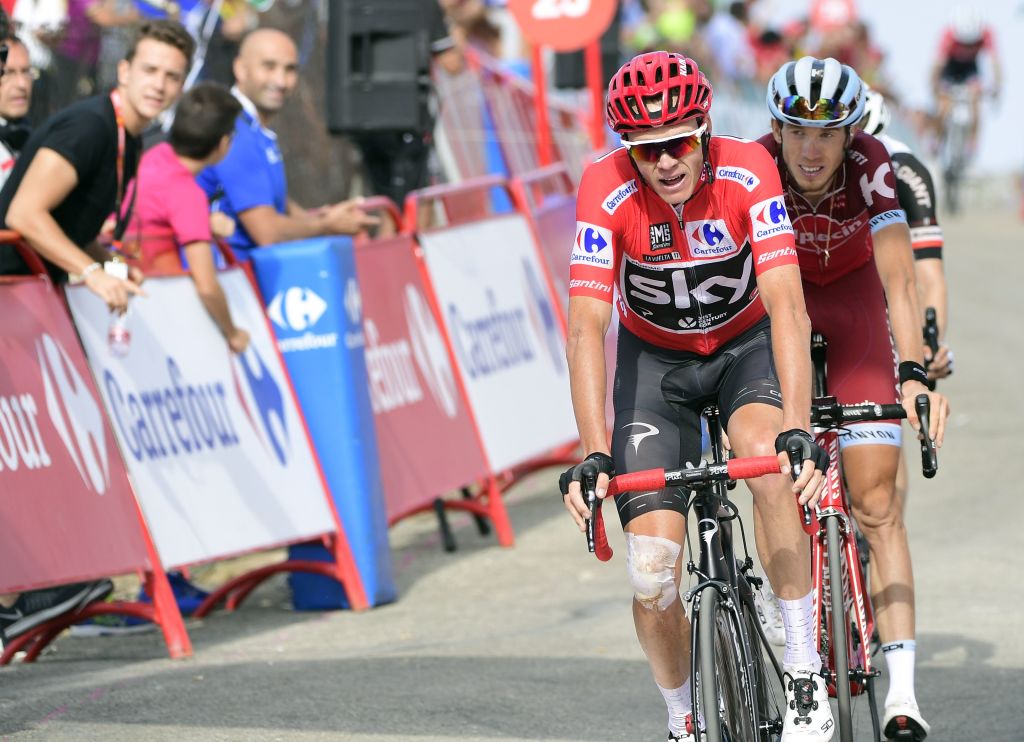
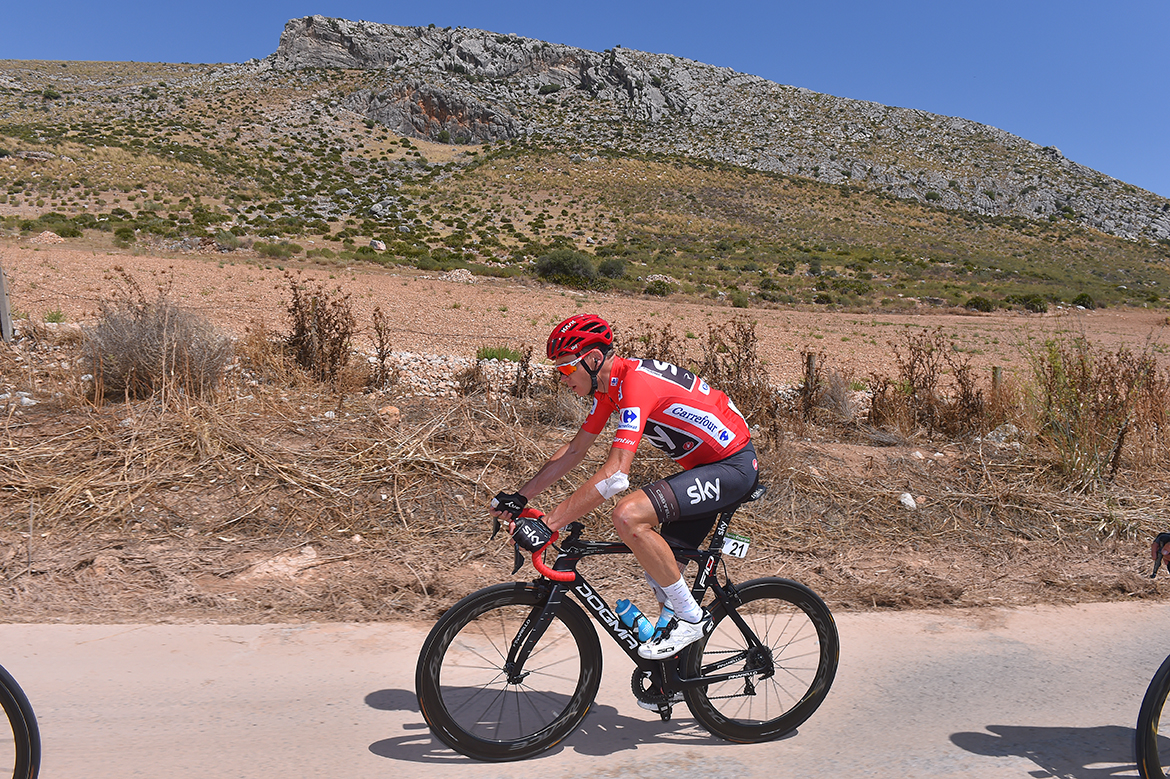
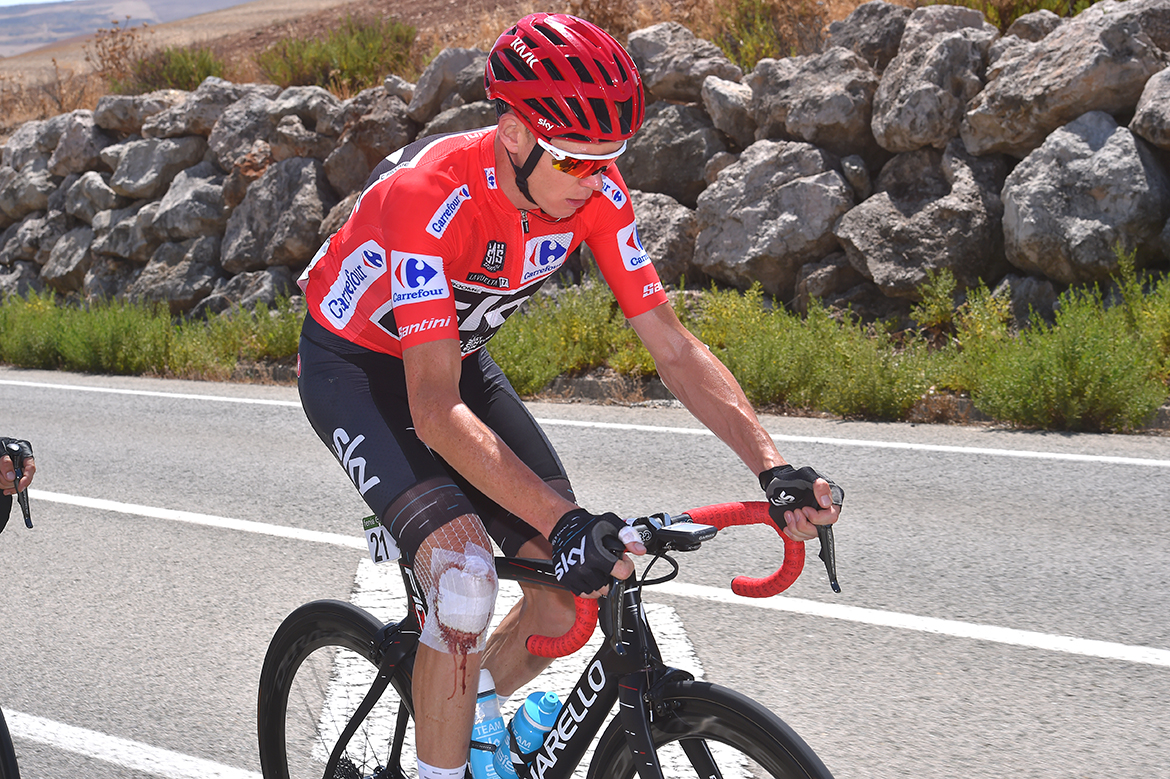
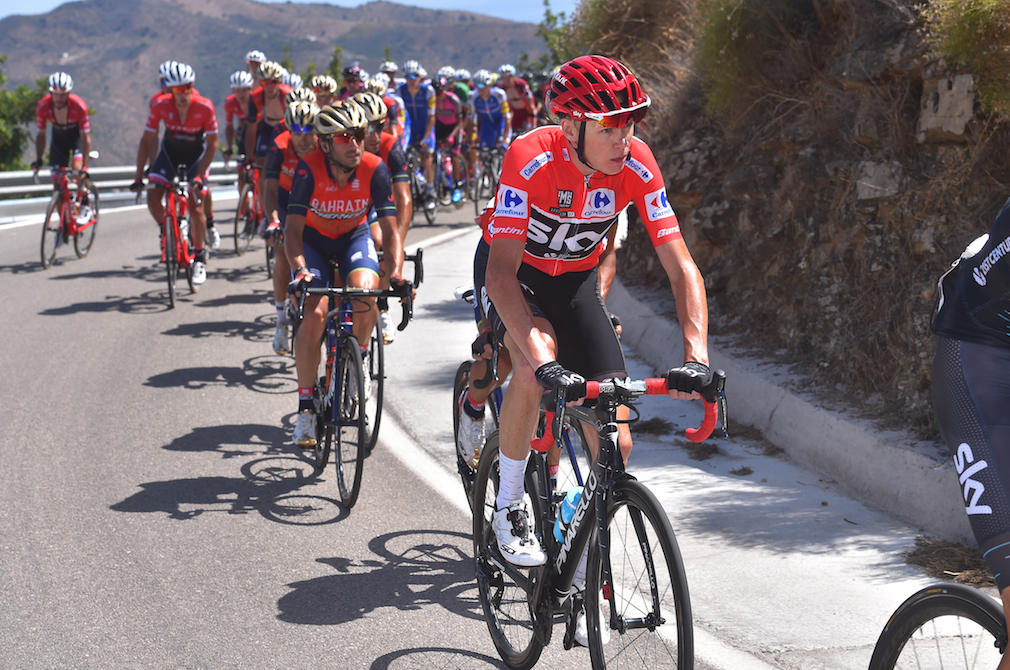
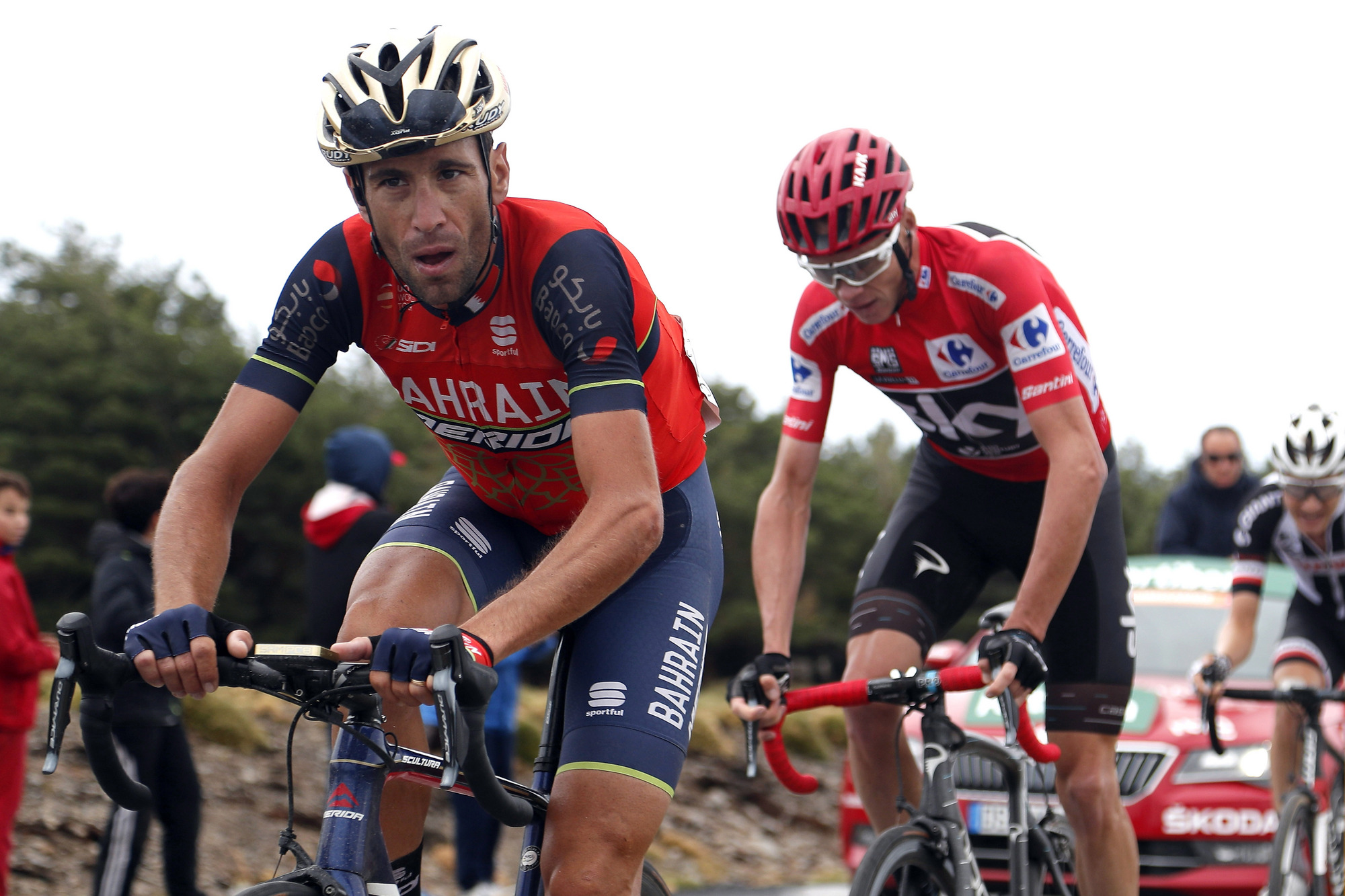
Vuelta a España leader Chris Froome (Team Sky) has explained that he preferred to race more conservatively than usual on La Pandera's summit finish on Saturday because on Sunday the peloton faces a much tougher stage.
Froome did not come across to Vincenzo Nibali (Bahrain-Merida) when Esteban Chaves (Orica-Scott) attacked halfway up the climb and then Alberto Contador (Trek-Segafredo) and the Italian, Froome's most dangerous rival on GC, bridged across.
Even as Nibali surged ahead and Chaves dropped back, Froome stayed at around 40 metres back before bridging across when Nibali and Contador appeared to slow slightly. From that point onwards, Froome remained in control, despite a brief surge by Contador in the final kilometre that fizzled out before the line, an explosive charge away by Miguel Angel Lopez (Astana Pro Team) and Nibali's well-calculated lunge for the finish.
All in all, it was a somewhat muted performance by Froome, but he said that this was calculated. He added that he had made a small error, in accelerating too soon at the finish, which perhaps cost him the four second time bonus on offer for third place, which was snapped up by Nibali.
"I was thinking about tomorrow's [Sunday's] stage, it's a big stage so I think it suited us to be a bit more controlled," Froome said afterwards. "When Chaves, Contador, Nibali and Lopez attacked, I was confident to stay with Wout Poels and then ride steadier.
"In the end, that was the right decision. I'm glad I kept some energy back for tomorrow's [Sunday's] stage."
Froome said that he was, indeed, aware of the bonus seconds on offer, but that he was not too troubled by the fact that one of his opponents could snatch some time back. "I knew the 10 seconds and six seconds [for first and second] had gone, and I did try to go a bit too early, which turned into a bit of a lead-out for Nibali," he said.
Get The Leadout Newsletter
The latest race content, interviews, features, reviews and expert buying guides, direct to your inbox!
"In the great scheme of things, I didn't necessarily go too far into the red, with tomorrow in mind. Another stage win would be special, stage wins always are, but it's not the reason I'm here.
"I'm keeping my eyes focused on the leader's jersey. If an opportunity comes, that's great, if not, then I'm happy about that as well."
Looking ahead to Sunday, Froome said that he viewed it as “one of the most selective, key stages remaining, particularly at the end of a really hard week” and repeated that it was important to keep something in reserve.
Certainly, Froome's rivals were not at all convinced that Froome was having any kind of a crisis when he failed to chase them down immediately on La Pandera. "It was strange how Bahrain-Merida went so hard, as did Katusha, but that last climb a bit more predictable," Contador said afterwards.
"Nibali went but I knew that Froome would be coming back, and sure enough, he did. It's normal that Froome did that, we all know how he climbs now. He was pacing himself and checking on his powermeter."
Ultimately, despite the slightly low-key finale for the Vuelta leader, Froome remains very much in control of GC, who had Poels in support when it mattered the most. While Nibali may have closed the gap slightly on GC, Froome's margin over Chaves, another key rival, has increased even more.
The verdict on whether playing conservatively was ultimately the right strategy for Froome will only become clear when the race reaches Sierra Nevada on Sunday evening.
Alasdair Fotheringham has been reporting on cycling since 1991. He has covered every Tour de France since 1992 bar one, as well as numerous other bike races of all shapes and sizes, ranging from the Olympic Games in 2008 to the now sadly defunct Subida a Urkiola hill climb in Spain. As well as working for Cyclingnews, he has also written for The Independent, The Guardian, ProCycling, The Express and Reuters.
